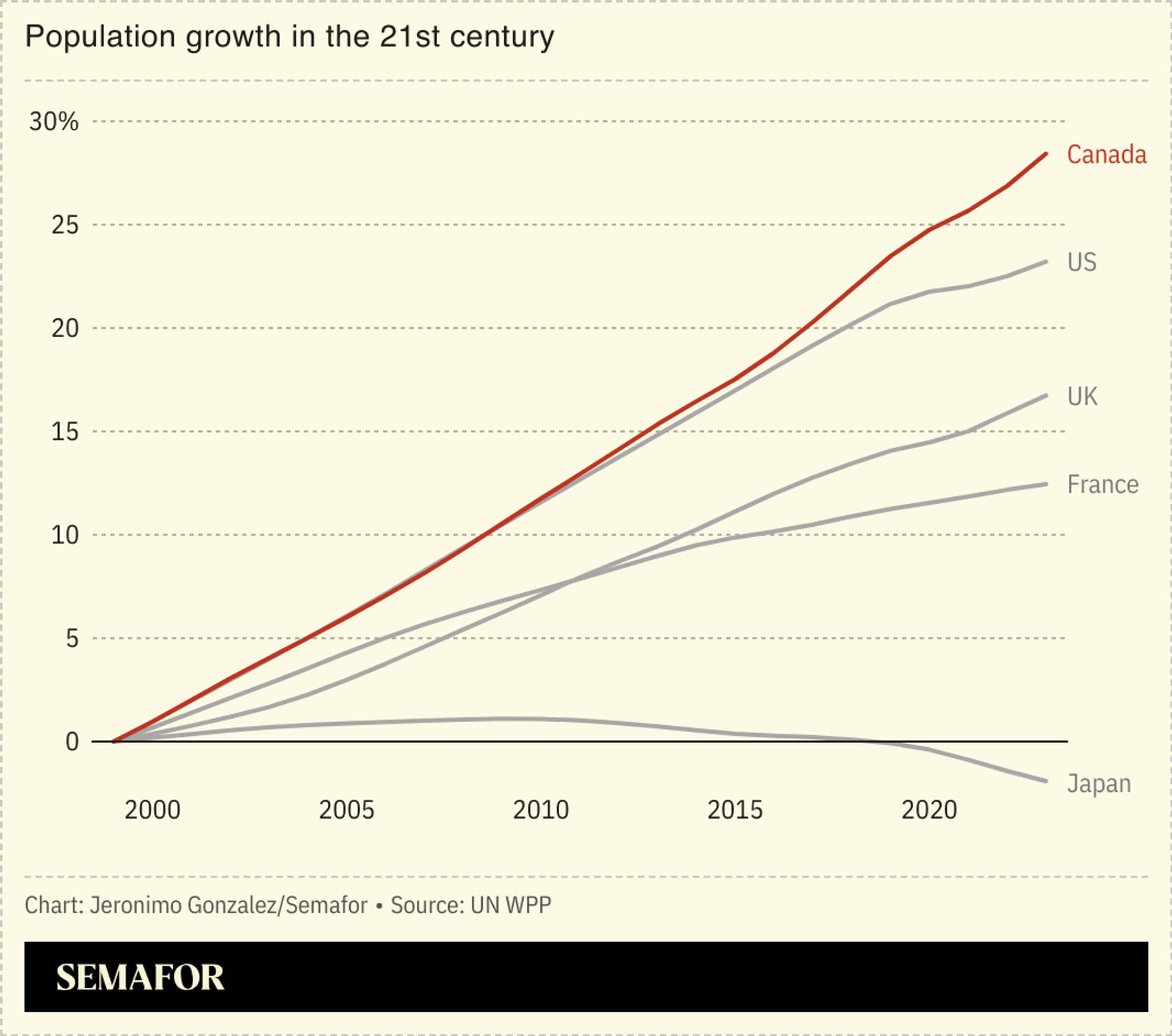The News
Canada has launched online ad campaigns aimed to dissuade prospective asylum-seekers, warning that claiming asylum in the country is “not easy.”
Separately, authorities in Ontario said they would broadcast commercials ahead of US President-elect Donald Trump’s inauguration in January that promote the province’s ties to the US. Notably, the ad will run in places where officials expect conservative viewers, including on Fox News and during American football games, Canadian broadcaster CBC said.
SIGNALS
Trudeau turns against his own pro-immigration policies
Canadian Prime Minister Justin Trudeau’s move to significantly reduce immigration is a “major shift” for the Canadian leader, the BBC wrote, noting that Trudeau ran on a platform in 2015 advocating for Canadian multiculturalism. However, he now says his government “didn’t quite get the balance right” as the country’s public services have strained under the pressure of an expanding population. The shift reflects a global trend: Germany, once a staunch supporter of the European Union’s open border policy, has made cracking down on immigration a top priority, while anti-immigrant populist parties across the bloc have seen their electoral support skyrocket. “The great irony,” one Canadian conservative politician wrote on social media, “is that if anyone else had said the same thing 2 years ago, [Trudeau] would have called them racist.”

Canada tries to appeal to conservative audience across US border
While the immigration campaign has been met with criticism, Canadian officials’ pro-Donald Trump TV ads appear to have more bipartisan support, CBC wrote, as the country “scrambles” to respond to the US president-elect’s proposed 25% import duty. Economists have argued the tariff would devastate Canada’s economy, cutting as much as 5% from the country’s GDP. Prime Minister Justin Trudeau flew to Mar-a-Lago Friday for talks with Trump, suggesting relations between the two leaders may not be “fatally fraught,” CBC wrote. “This is all about a deal,” Trudeau’s former economic adviser told CBC. “You can see how you start to put these things together and it looks attractive from Trump’s perspective of being able to say, ‘Well, look at look at what we’re getting.’”

